Best Denzel Washington Movie Speeches, Ranked
Denzel Washington's best speeches come from, among others, Training Day and Malcolm X.
Denzel Washington stands as one of his generation’s greatest actors. There are countless scenes and moments that demonstrate the depth and breadth of his artistry, but we’ve gathered our favorites. Here, then, are our top 5 Denzel Washington movie speeches.
American Gangster (2007) – “Bumpy Was Rich”
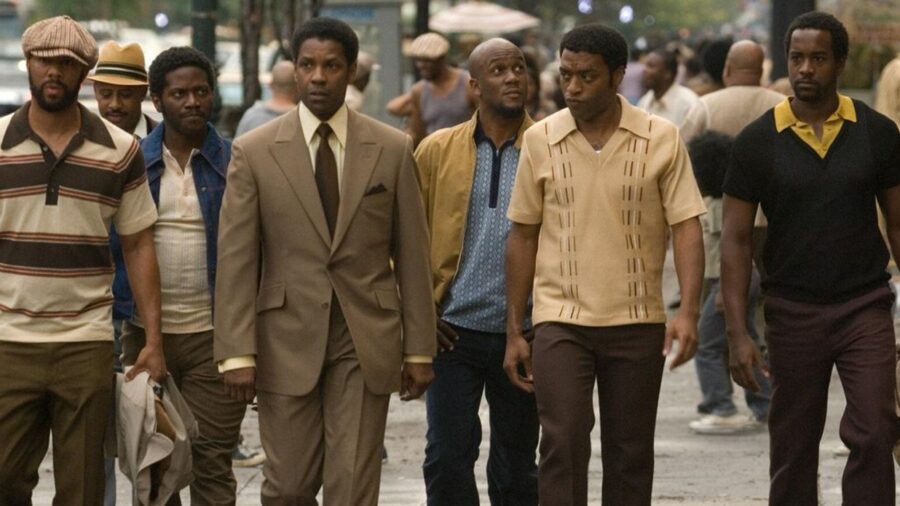
As drug lord Frank Lucas walks the streets with his guys, he recalls his former employer, Bumpy, who he says was rich, but not wealthy, not “white man rich.” The distinction, for Lucas, is that Bumpy didn’t own his company. Since white people owned it, he says, “they owned him.”
The scene features not only a singular definition of the character’s view of success but a commentary on how racial inequality fueled that view and led him to seek to be a big fish, no matter the pond. It also shows Denzel Washington’s signature smooth swagger, which could make a cake recipe sound like a treatise on the way the world works.
Malcolm X (1992) – “We Were Black”
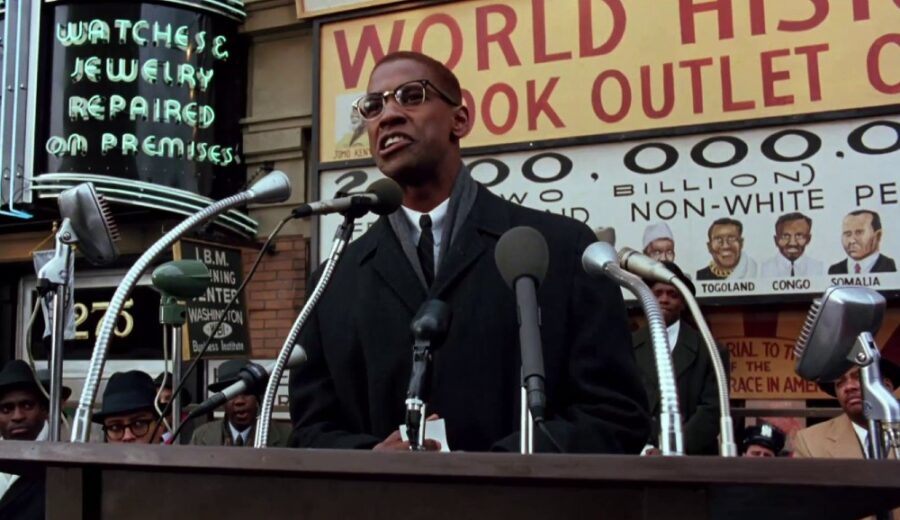
In another scene that depicts a Black man calling attention to racial inequality in the United States, Denzel Washington as Malcolm X speaks at a civil rights rally outside a Harlem bookstore to a crowd that at first seems unsure of the speaker they’re hearing. But he presents himself as not a Republican or Democrat, or even an American, but as a Black man. He then reminds the audience that Black people existed before any of the definitions that divide them—Republican or Democrat, Jew or Christian. “In fact,” he says, “before there was any such place as America, we were Black.”
Malcolm X then speaks to the degree to which Black people in Harlem are beholden to white people, especially politicians. He speaks to the drugs, alcohol, and prostitution that are there “to pacify us” and that his neighbors can’t even get “without a white man’s permission.” The speech demonstrates Washington’s ability to eloquently bring the rise-and-fall rhythm of his energy to an impassioned crescendo.
Remember The Titans (2000) – “Gettysburg”
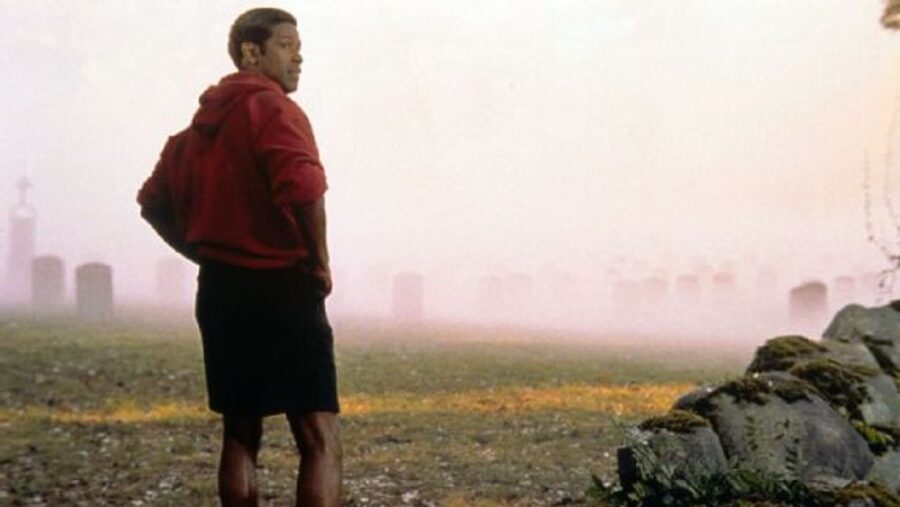
In this fictional depiction of another real-life fighter against racial inequality, Denzel Washington plays Coach Herman Boone, who leads a newly racially-integrated football team. During a training camp, Boone takes the team on a long, early-morning run that seems at first like merely a grueling physical trial. Instead, it becomes an object lesson as the team arrives at their intended destination—the battlefield of Gettysburg.
In a quietly compelling speech, Boone describes the green field “painted red” with the blood of young men who fought “the same fight that we’re still fightin’ amongst ourselves today” and encourages them to learn from the ones who died there. “If we don’t come together,” he says, “we too will be destroyed.” In words that remain fitting in our own world, Boone reminds his players that they don’t have to like each other to respect each other.
Training Day (2001) – “King Kong”
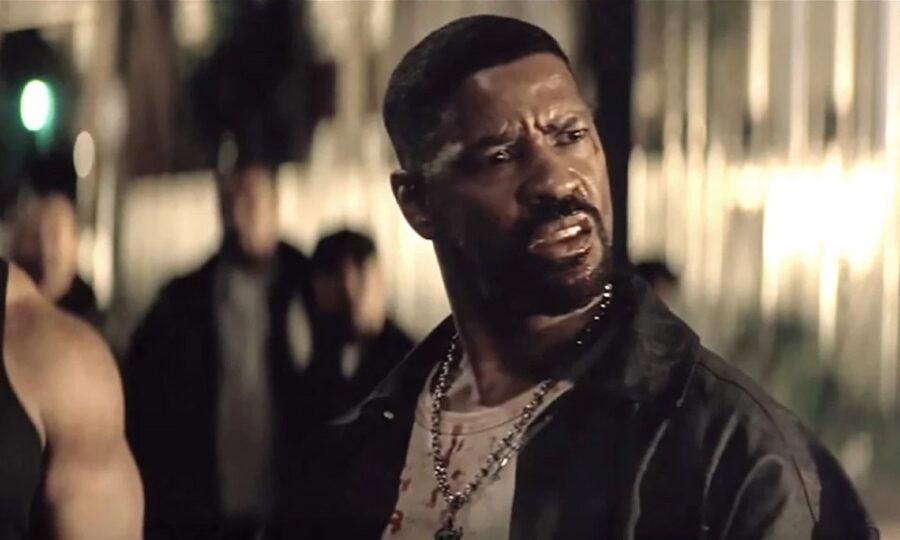
Unspooling from his usual heroic image, Denzel Washington here plays LAPD Det. Sgt. Alonzo Harris, an undercover cop who is losing his grip on the neighborhood he once ruled, as his neighbor’s side with the white rookie cop he sees himself as babysitting over him. While even his American Gangster character, Frank Lucas, had a sense of his own moral code, despite his crime-world life, Alonzo is splintered and shattered, breaking apart as he strains to hold onto the power by which he defines himself.
The infamous line invoking “King Kong,” which had to be re-recorded with TV-friendly language for the film’s trailer, was one Washington famously improvised, demonstrating how deeply involved he became in his character’s mindset and emotions. In the scene, Alonzo demands, “You think you can do this to me?” and threatens those around him, with imprisonment, “shoe program,” and “23-hour lockdown.”
Glory (1989) – “We men, ain’t we?”
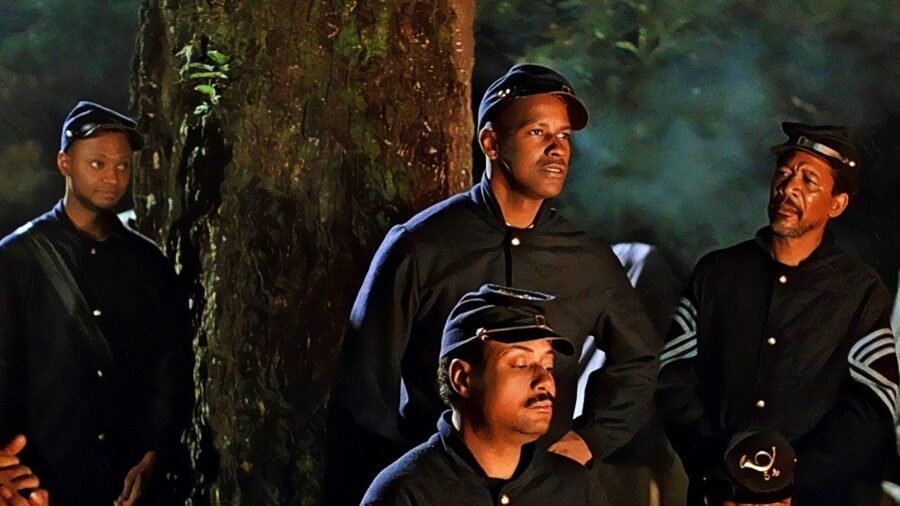
By word count, it’s the shortest speech on our list. But it’s not just the words that are said that make it great. During a prayer meeting before the day of battle, Denzel Washington’s character, Private Silas Trip, is urged to speak, both by his Sergeant (Morgan Freeman) and his fellow soldiers. “I ain’t much about no prayin’, now,” he begins, as the group continues to encourage him to speak against the rhythmic backdrop of humming and hand claps.
Trip doesn’t have to say much to say everything. Calling his regiment “the onlyest family I got,” he simply says he loves them and that what happens the next day doesn’t matter much because, “We men, ain’t we?” The words alone carry power, harkening to the Quaker abolitionist slogan, “Am I not a man and a brother?” and standing as a declaration of personhood against the tide of racial oppression.
But it’s how Washington uses the silences in the scene—the space between the words—that makes this speech stand out from all the others on our list. As the burgeoning emotions bubble up through Trip’s nervousness and shyness, he doesn’t need a lot of words to convey the heavy truth all the men know: They are going into battle to fight and likely die for their own personhood and that of their families and their people.












